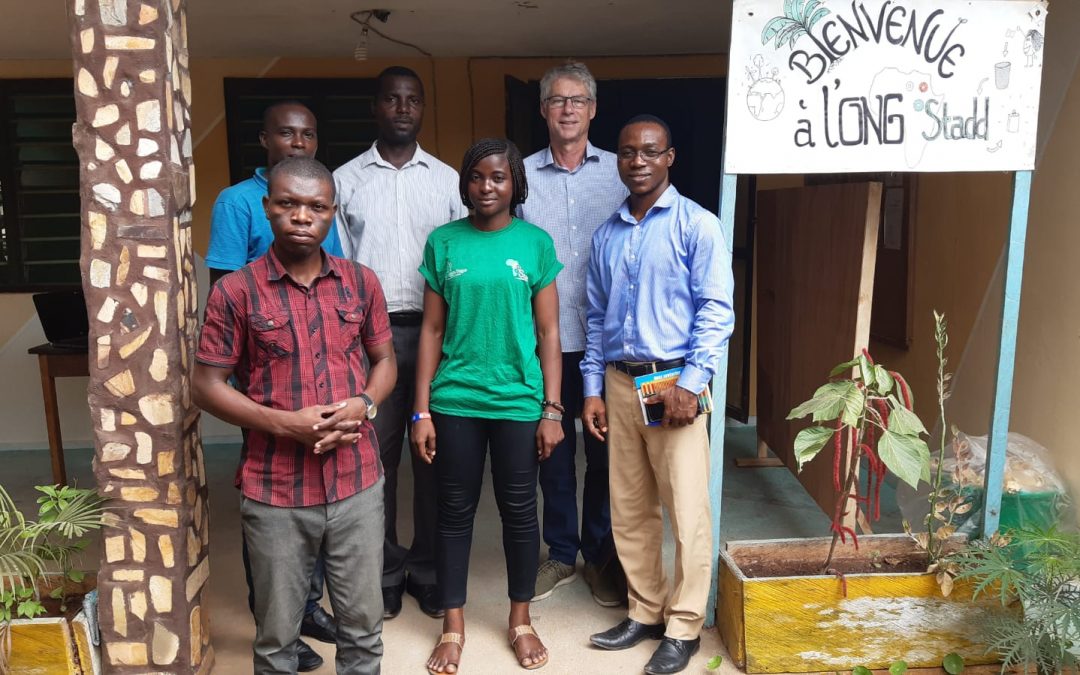Photos courtesy of Kees van der Ree.
Supporting young people for sustainable development and climate action:
Improving skills for green jobs in Togo
Supporting young people for sustainable development and climate action:
Improving skills for green jobs in Togo
The rise of green jobs has become a reality everywhere, including Togo, amid the rising demand for healthy and organic products. The country has become a leading exporter of organic pineapple, ginger, and soy in West Africa, and the government is pushing for all farms to be 100% organic by 2030.
However, the acceleration towards an increasingly green economy is hampered by the lack of an appropriately skilled workforce. Most working agronomists are not aware of the principles of eco agriculture, let alone the dynamics of the organic market, and higher education institutions continue to train according to conventional curricula, which focus on increasing agricultural productivity through the use of chemical fertilisers and pesticides.
As a result, young job seekers in the agricultural sector struggle to fit in. To improve skills and increase their chances of being hired, the National Agency for the Promotion of Employment (ANPE) is focusing on training for green jobs. As a first step, some additional training courses for young people are envisioned, in sectors such as organic agriculture, renewable energy, and the collection and recycling of household waste.
By taking small, specific steps, ANPE wants to encourage a crosscutting review of the educational system towards sustainable development, particularly in higher education, with the goal of improving the employability of young people in Togo and reducing migration for work.
SOCIEUX+ is supporting ANPE by examining the gap between the demand for adequate skills and know-how in green growth sectors, and the current facilities and trainings available. The result of this diagnosis is clear; vocational training must adapt quickly to the changing needs of the private sector in Togo, facilitating the transition to a low-carbon economy that protects natural resources. This move is not only to address the concerns and sentiments of young people today, but also to save the planet over time.
(SOCIEUX+ 2019-16)








